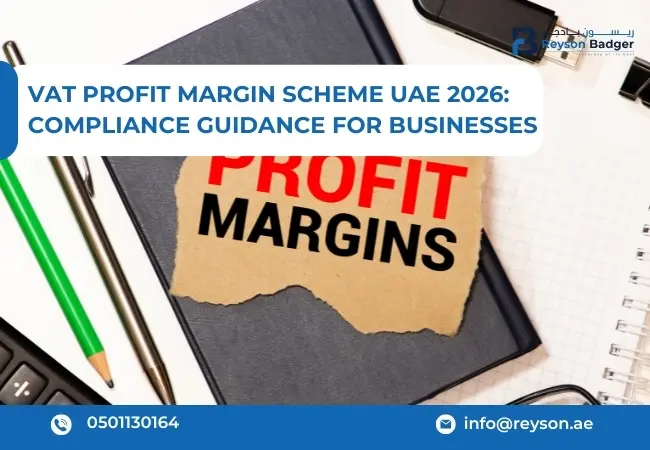Top 20 Corporate Tax Consultants in UAE
19-Jan-2026
UAE Corporate Tax Introduction
The UAE authorities have declared the implementation of corporate taxation starting June 1, 2023. Corporate tax entails a direct levy on the earnings or profits of corporations and other commercial entities. UAE Corporate tax features are designed to encourage foreign investment and boost economic growth

The Aim of Corporate Tax Implementation in the UAE
The introduction of corporate tax in the UAE serves several key purposes:
- Elevating the UAE's reputation as a leading global hub for commerce and investment.
- Aligning with international tax transparency standards and preventing harmful tax practices.
- Expediting the UAE's progress and transition to achieve its strategic objectives.
Scope of Corporate Tax in UAE
The scope of corporate taxation in the UAE, as outlined by the government, encompasses the following:
- All businesses and individuals operating in the UAE must possess legitimate commercial licenses.
- The UAE's corporate tax framework will continue to provide incentives to free zone enterprises adhering to regulatory guidelines and not established on the UAE mainland.
- Eligibility for corporate tax applies to foreign entities and individuals engaging in regular or continuous trade or business within the UAE.
- This includes banking activities and businesses engaged in the management, development, construction, agency, and brokerage of real estate.
UAE Corporate Tax Features
The UAE Corporate Tax features the following features:
Tax Rates
- A tiered system applies. Businesses earning annual taxable profits below AED 375,000 (approx. USD 102,000) are subject to a 0% tax rate.
- Any taxable profit exceeding AED 375,000 is taxed at a standard rate of 9%.
- There are also specific rates for Multinational Enterprises (MNEs) under the OECD's Base Erosion and Profit Sharing (BEPS) 2.0 framework.
Free Zone Treatment
- Qualifying Free Zone Persons benefit from a 0% corporate tax rate on their Qualifying Income, which typically involves transactions with other Free Zone Persons.
- However, any income derived from Excluded Activities or those not considered Qualifying Income will be taxed at the standard 9% rate.
Exemptions
- Several entities are exempt from UAE Corporate Tax, including government entities, specific resource businesses, qualifying public benefit organizations, and certain investment funds.
Calculation
- The tax is applied to the net profit after factoring in allowable deductions and excluding exempt income.
- Foreign taxes paid can also be deducted from the taxable profit.
Overall, the UAE aims to balance attracting businesses with a competitive tax environment while diversifying its revenue streams. Remember, this is a relatively new tax system, so consulting with a professional for the latest updates is always recommended.
UAE Corporate Tax Compliance
Here's a breakdown of key points for UAE corporate tax compliance:
Who is subject to UAE Corporate Tax?
Most businesses and commercial activities are subject to the tax, with some exemptions.
Exempt entities include:
- UAE government entities
- Certain government-controlled entities
- Businesses in specific extractive industries
- Qualifying public benefit entities
- Qualifying investment funds
When does the tax apply?
The corporate tax applies to financial years starting on or after June 1, 2023.
UAE Corporate Tax Administration
Federal Tax Authority (FTA): The FTA is responsible for the day-to-day administration of the corporate tax system. This includes tasks like:
- Registration : Businesses must register for corporate tax with the FTA.
- Returns and filing : Businesses are required to file tax returns electronically with the FTA.
- Collection and enforcement : The FTA is responsible for collecting corporate tax payments and enforcing tax regulations.
- Ministry of Finance (MoF) : The MoF remains the authority on international tax agreements and information exchange for tax purposes.
This division of responsibility aims to streamline the process for businesses while ensuring proper enforcement.
Conclusion
To sum up, the UAE bringing in corporate tax is a big change for its economy. It might be tough for businesses at first, but it shows the country wants to manage its money better and have a more varied economy. With some planning, companies can deal with this new tax system and keep doing well in the UAE. UAE corporate tax scope is crucial for companies operating in the region to ensure compliance with tax laws and regulations.
Latest Blogs

Accounting System Analysis in Dubai: A Complete Guide for Businesses
Accounting System Analysis Services in Dubai and UAE, businesses gain clarity, control, and confidence in their financial operations turning accounting systems.
READ MORE →
Information System Audit for SMEs: What You Need to Know
Information System audits help UAE SMEs protect data, stay compliant, and strengthen operations for secure, sustainable business growth.
READ MORE →
Mandatory Audit Requirements for UAE Mainland Companies
Mandatory audits are required for UAE mainland companies to maintain compliance, ensure transparency, and support sound financial reporting.
READ MORE →
VAT Profit Margin Scheme UAE 2026: Compliance Guidance for Businesses
The VAT Profit Margin Scheme in UAE 2026 allows eligible businesses to calculate VAT on profit margins instead of full selling prices, ensuring simplified compliance and reduced tax burden.
READ MORE →
Business License Issuance and Renewal Services: What You Need to Know?
A practical guide to business license issuance and renewal in the UAE, including steps, timelines, and key requirements.
READ MORE →
Top Mistakes Tourists Make While Claiming VAT Refund in Saudi Arabia
Tourists often lose their VAT Refund in Saudi Arabia due to small mistakes. Discover common errors and tips to claim your refund successfully.
READ MORE →
UAE VAT Compliance Calendar: Key Deadlines and Filing Dates
A complete UAE VAT compliance calendar highlighting key VAT filing deadlines, return due dates, and important timelines to help businesses avoid penalties.
READ MORE →
VAT Assessment and Compliance Services in UAE: Key Risks, Obligations, and Best Practices
This blog explains VAT assessment and compliance services in the UAE, covering regulatory obligations, common compliance risks, and best practices businesses must follow. Learn how proper VAT reviews, accurate filings, and transaction assessments help avoid penalties and ensure alignment with Federal Tax Authority (FTA) requirements.
READ MORE →
How VAT Refund Schemes in Saudi Arabia Compare with UAE & Other GCC Countries?
Explore how VAT refund schemes in Saudi Arabia differ from the UAE and other GCC countries. This blog compares eligibility, processes, timelines, and compliance requirements, helping businesses and tourists understand key refund opportunities and regional VAT recovery strategies.
READ MORE →
Accounts Outsourcing Services in Dubai: What Every Business Owner Should Know
Accounts Outsourcing Services in Dubai cover essential finance functions through a structured and professional workflow, compliant, and financially organized.
READ MORE → The Federal Tax Authority (FTA) has announced that businesses must complete Corporate Tax registration within 90 days from the Date of Incorporation / MOA.
The Federal Tax Authority (FTA) has announced that businesses must complete Corporate Tax registration within 90 days from the Date of Incorporation / MOA.




